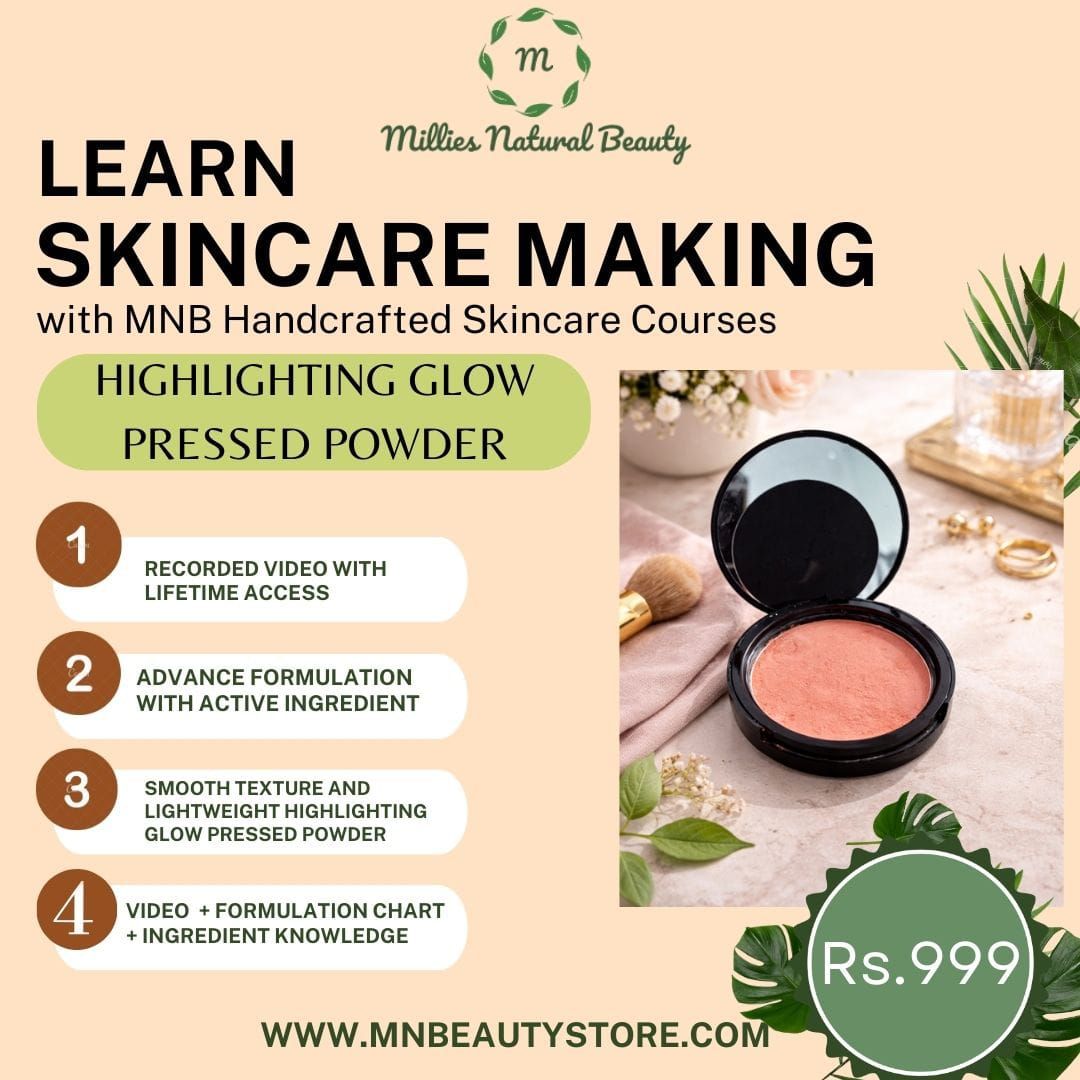One Stop Place for HANDCRAFTED SKINCARE Products
Featured Products
On Sale

Learn Highlighting Glow Compact Pressed Powder Making
Learn Highlighting Glow Compact Pressed Powder Making
was ₹2 999.00
Save 67%
₹999.00
Display prices in:INR
One Stop Place for HANDCRAFTED SKINCARE Products

